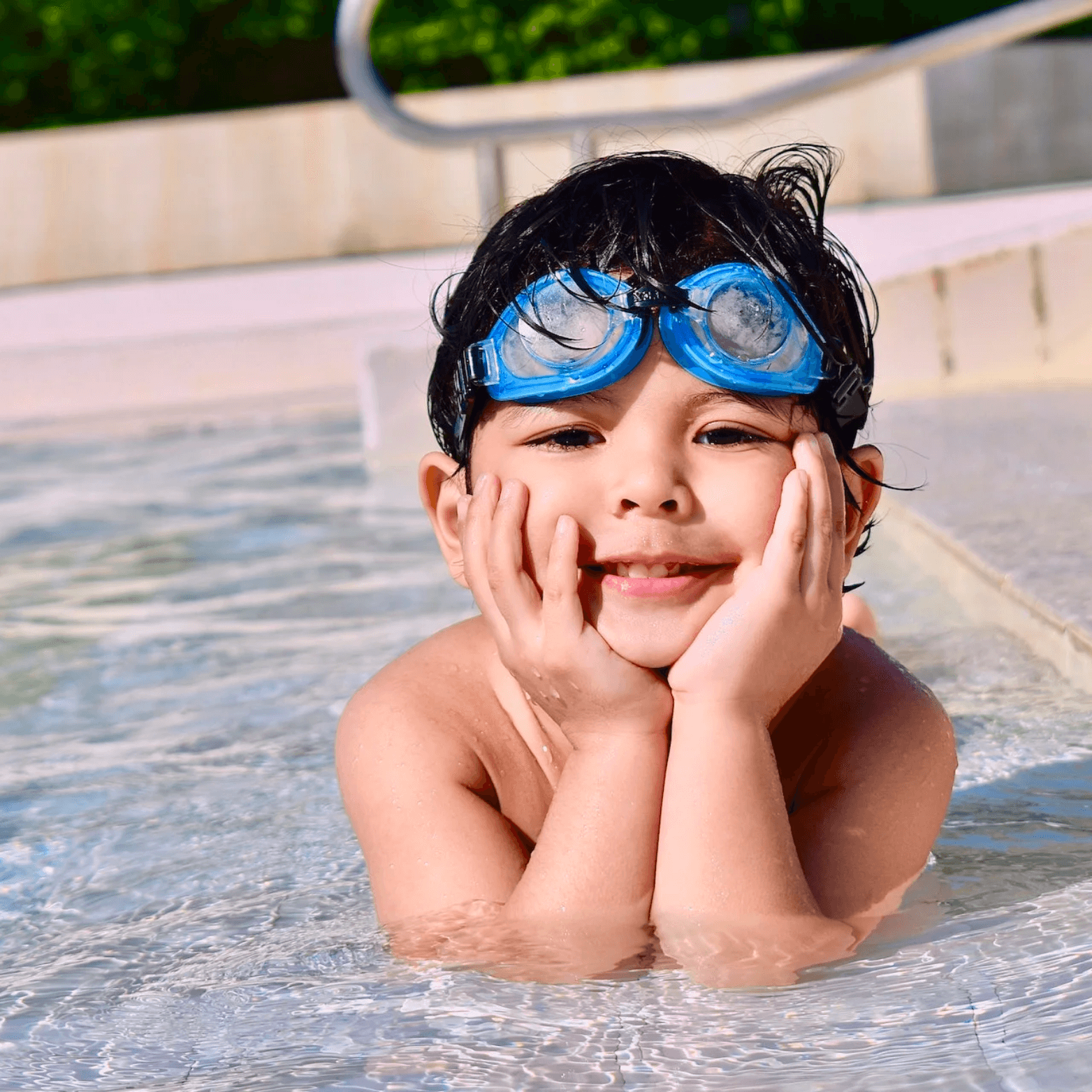We are now just a few days away from the official start of summer, the quintessential time of the pool, the beach, the river and other ideal places to take a comforting, fun and refreshing dip, play jumping in the waves or practice such a sport. beneficial like swimming.
Many families are unaware of the great benefits that swimming from an early age can bring , or doubt about the best time to enroll their child in swimming classes .
Today, we will solve that question so that you feel, never better said, like a fish in water leaving your child in the pool.
The incredible benefits of swimming for your children's health

Swimming is an activity that enhances strength, endurance and flexibility at the same time. For this reason, it has earned the merit of being considered the “most complete sport.” These are some advantages of swimming for the health of the little ones:
- Superior muscle development: When swimming, two-thirds of the muscles in the entire body are used. It is a low-impact exercise, with very little chance of injuring bones or joints, or suffering from muscle pain. Therefore, it contributes to children's muscle development safely.
- A healthier heart : Swimming promotes superior cardiovascular health. It strengthens the heart, makes blood supply more efficient, reduces blood pressure and optimizes the functioning of blood vessels. By taking care of the heart and muscles, children acquire better resistance.
- Better quality of sleep : Swimming is a relaxing activity that helps release adrenaline, prevent stress, release happiness hormones such as dopamine, serotonin or endorphins, combating insomnia and helping to fall asleep.
- Natural anxiolytic : Swimming improves mood and helps take care of mental health. A study carried out by Swim England shows that swimming is very useful in preventing and reducing symptoms of anxiety and depression. In it, 1.4 million people in England confirmed the positive effects of swimming at least once a week.
- Better immune system : Swimming in cold water increases the white blood cell count, helps eliminate bacteria and pathogens from the respiratory tract and causes changes in antibodies and leukocytes. Thus, children may have more resistance to potential diseases. By avoiding a sedentary lifestyle, you also reduce the risk of obesity.
- Improving body posture: Swimming is an activity that is especially beneficial for the back, and helps children to have good body posture from a young age, promoting correct alignment and avoiding future pain and muscle problems.
- Great coordination, balance and flexibility: Swimming requires coordination and the joint work of different muscles in the body at the same time. By toning their muscles and moving to stay afloat, children become more flexible and gain dexterity, psychomotor skills or balance, as well as mental concentration and knowledge of their own body.
- Cognitive development : Learning to swim at an early age can help improve and accelerate children's cognitive development, in addition to promoting the acquisition of new words. Research also indicates that children who are fit tend to have greater brain volume in the hippocampus , a region of the brain associated with memory. According to the BBC, it also increases the levels of a protein called brain-derived neurotrophic factor (BDNF), improving neuronal plasticity.
Specialists point out that swimming also helps to achieve more self-esteem, gain confidence and help children overcome their fears, obtain more social well-being and cultivate discipline and love for physical activity from a very young age.
Age at which a child can learn to swim
It is important to note that any age is good to learn to swim. Or in other words, it is never too late to learn. However, doing it from an early age offers multiple benefits, such as easier adaptation to water or the fact that children are more receptive to learning.
In addition, it is a vital skill to take precautions and increase the child's safety in the water. There are swimming pools that allow parents to enroll their baby in swimming from the time they are 6 months old, which is known as midwifery swimming.
They are sessions appropriate to child development, and whose purpose is not exactly to teach how to swim, but rather to learn to float through a series of exercises and aquatic stimulation games. In addition, it provides them with a lot of well-being: remember that they come from spending 9 months in an aquatic environment. The duration of midwifery varies depending on different factors, although it usually lasts approximately up to 2 years. In these classes the baby strengthens the bond with his caregivers, acquires basic flotation skills, improves his psychomotor skills, and gains confidence and autonomy in the water.
Focusing on swimming itself, specialists recommend that children learn to swim between 3 and 4 years old, although it depends on the maturational state of each child.
The first steps are floating and moving the lower extremities, swimming doggy style or diving, always starting with the help and under the supervision of a professional. In the more advanced phases, children can already learn the different swimming techniques and styles: front crawl, backstroke, breaststroke and butterfly.
It is recommended that for several of these styles they be at least 4 or 5 years old. For example, most swimming experts suggest that swimmers should be at least 8 or 9 years old before beginning to learn the butterfly stroke.
POSTSCRIPT: Don't miss the opportunity to take a look at our fun and loving diving goggles for the beach and pool , made with the best quality materials and adapted to the physiognomy of the little ones so that they can enjoy their dips.


0 comments